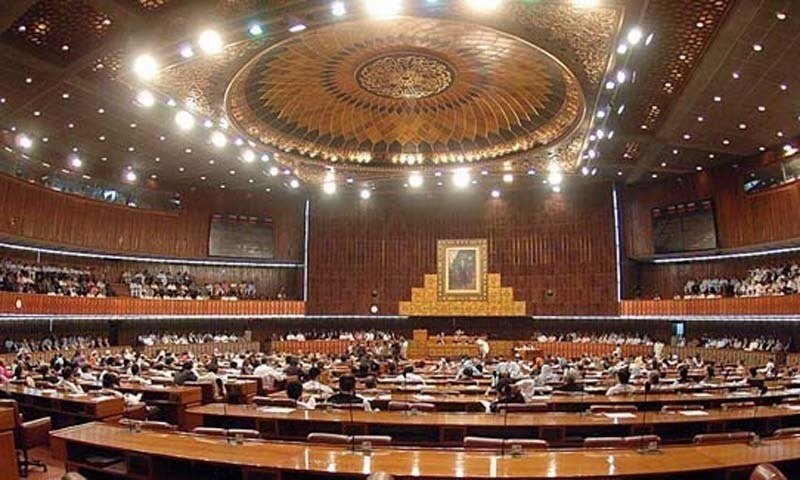Arshad Mahmood Awan
Pakistan’s economic roadmap for the upcoming fiscal year has hit a familiar obstacle: unresolved negotiations with the International Monetary Fund (IMF). The government has now delayed the presentation of the federal budget to June 10, a move attributed to continued disagreements with the IMF over key expenditure items. These sticking points reportedly include proposals for relief to the middle class and higher defence allocations, both of which the IMF sees as potential threats to fiscal discipline and the integrity of Pakistan’s $7 billion Extended Fund Facility (EFF) programme.
This delay, while not unprecedented, reflects a deeper crisis of governance and economic sovereignty. The state remains heavily dependent on external financial institutions, with limited room to maneuver when attempting to address pressing domestic concerns — whether those be economic hardship faced by citizens or escalating regional security threats, particularly from India.
The government’s position is that certain expenditures are non-negotiable. Relief measures for the salaried middle class — already weighed down by record-high inflation, rising utility costs, and stagnant wages — are seen as essential for social stability. At the same time, military expenditures are deemed critical in light of India’s aggressive posturing and the ever-present threat on Pakistan’s eastern front. Yet, for the IMF, these allocations require careful scrutiny within the broader objective of fiscal consolidation and primary surplus maintenance.
Following several inconclusive rounds of talks in Islamabad, the IMF delegation departed with a commitment to continue virtual discussions in the coming week. In its post-visit statement, the Fund described the talks as “constructive,” noting that both sides remain committed to a fiscal path that targets a primary surplus of 1.6% of GDP in FY2025. The statement emphasized enhancing tax compliance, broadening the revenue base, and “prioritising expenditure” — carefully worded but suggestive of resistance to both defence spending increases and middle-class tax breaks unless offset by new revenue streams.
While there is no sign of an immediate breakdown in negotiations, the impasse once again reveals the IMF’s orthodox approach to economic recovery: austerity, tax expansion, and limited social spending. This formula, while theoretically sound, often overlooks the political and social realities on the ground in borrower countries like Pakistan. The country’s already strained public — especially the tax-paying middle class — cannot withstand another cycle of punishing economic prescriptions. Nor can the state indefinitely defer key national security priorities.
Historically, disagreements of this nature between Pakistan and the IMF have been resolved through compromise. The Fund may insist on offsetting relief and defence spending with tighter revenue collection measures — possibly through regressive means such as withdrawal of subsidies or enhanced indirect taxation — but it generally relents when faced with the political sensitivity of the issues involved. However, such compromises tend to only delay structural reform, not enable it.
Pakistan finds itself in a precarious balancing act. The need for fiscal responsibility is real, especially in light of the fragile economic recovery that could be easily derailed by internal missteps or external shocks. The government must resist lobbying from entrenched sectors such as real estate, which continues to demand tax concessions, and instead push for genuine tax reform that broadens the base, enforces compliance, and shifts the burden from the poor to the affluent.
Simultaneously, the state cannot ignore the growing public pressure for economic relief. With inflation easing only slightly and employment prospects grim, expectations are high that the FY26 budget will bring some reprieve. Political survival, too, hinges on delivering visible progress — or at least creating the perception of it. There is thus an evident temptation within the ruling elite to engineer a “feel-good” budget, which may pacify voters in the short term but risks undermining longer-term macroeconomic stability.
The more critical question now is whether Pakistan can ever truly break free of IMF dependency. The answer, in the short term, appears to be a resounding no. The country’s external account remains weak, reserves are inadequate, and multilateral financing is essential to maintain solvency. Pakistan continues to survive largely through loan rollovers from friendly nations and staggered IMF tranches — a survival strategy, not a growth path.
This dependence has significant consequences for economic sovereignty. Policymaking is increasingly shaped in Washington and Dubai rather than Islamabad. Even critical areas like military defence spending and public sector relief are now up for negotiation with external stakeholders. While the government may rationalize this as a necessary compromise to secure international support, the longer-term consequences of such constrained fiscal autonomy are deeply problematic.
In this environment, every fiscal decision becomes political — not just domestically but internationally. The state must tread carefully. A misstep could spook investors, stall aid, or provoke political backlash. The FY26 budget must therefore strike a delicate balance: enough austerity to satisfy the IMF, but enough relief to stabilize public sentiment and strengthen national resilience.
What’s missing is a coherent long-term vision that can move Pakistan beyond this cycle of crisis management. Without genuine structural reform, focused on reducing dependency, expanding the domestic revenue base, and making expenditures more efficient and equitable, Pakistan will remain stuck — politically cornered, economically fragile, and diplomatically vulnerable.
The delay in the budget is more than a scheduling hiccup. It is a symptom of deeper dysfunction. The government must now choose whether to continue papering over cracks or begin the hard work of rebuilding the foundations of a sustainable, sovereign economy. The time for half-measures is over.
















